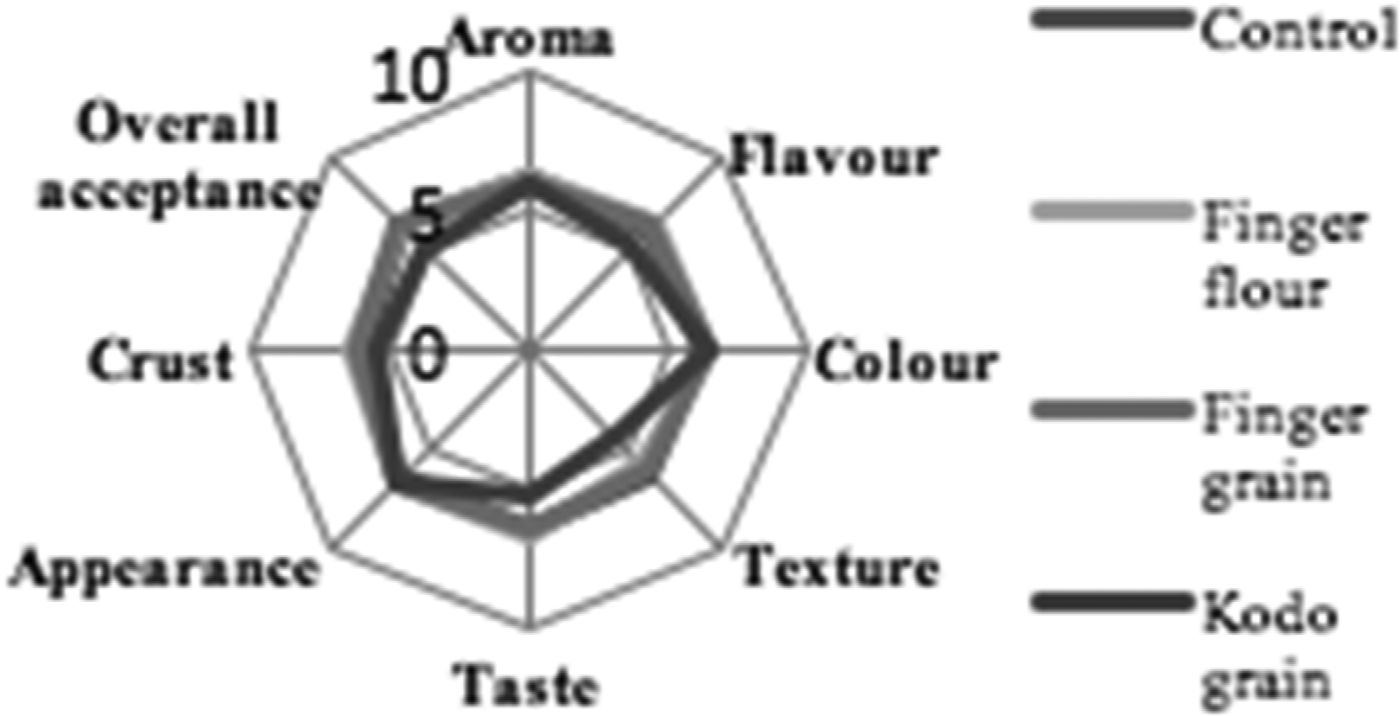Millet is a functional grain that has attracted interest for many years and has a unique position among other cereals due to its high content of polyphenols, antioxidants and dietary fibre( Reference Amadou, Gounga and Le 1 ). It has been found that the digestion, absorption and metabolism of both starch and sucrose can be affected by polyphenols and their metabolites( Reference Hithamani and Srinivasan 2 ). Furthermore, polyphenols have been shown to reduce the sugar release from foods that are rich in carbohydrates( Reference Coe, Fraser and Ryan 3 ).
Sensory analysis of new products plays a significant role in food choices. The increasing demand for new and healthy bakery products has resulted in a new market for alternative ingredients. The addition of millet grain to existing baked products is a simple and appropriate way of enhancing their nutritional value to provide health benefits( Reference Lizia and John 4 ).
The aim of this study was to evaluate the effect of polyphenol-rich millet-based muffins on in vitro starch digestion and to conduct a sensory principles test to assess their overall acceptance.
Laboratory studies were conducted to determine the in vitro starch digestion of selected millet-based muffins and analyse reducing sugar using the 3,5-Dinitrosalicylic acid (DNS) colorimetric method( Reference Coe, Fraser and Ryan 3 ). Descriptive sensory evaluation of millet-based muffins was conducted in 30 healthy volunteers (19 female and 11 male) by scoring different attributes using a 9-point hedonic scale.
These results show that there was a reduction in sugar release in all three millet-based muffins compared to a wheat based muffin (control) (Table 1). The control muffin and finger millet flour-based muffins showed a significantly higher rapidly digested starch (RDS) compared to the grain-based muffins (finger millet and kodo millet; p < 0·05). Figure 1 shows that the control muffin and muffins made with finger millet flour and grain were significantly more acceptable compared to muffins made with kodo millet grain. The overall acceptance was significantly different (p = 0·005) between kodo millet grain-based muffins and finger millet-based muffins in both forms. The results of this study provides valuable data for using millet in baked products which can result in increased utilization of millet and production of nutritious baked products to consume as part of the daily diet.

Fig. 1. Spider graph showing sensory analysis data for millet based muffins
Table 1. Rapidly digestible starch (RDS) and slowly digestible starch (SDS) in control muffins and different types and forms of millet-based muffins

* Significance level p < 0·05.
RDS = sugar released after 20 min of digestion.
SDS = sugar released between 20 and 120 min of digestion.




